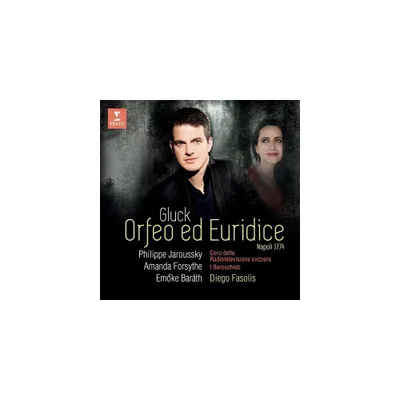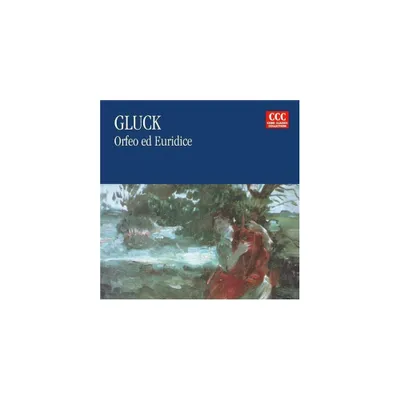Home
Gluck: Orfeo & Euridice
Loading Inventory...
Barnes and Noble
Gluck: Orfeo & Euridice
Current price: $21.99


Barnes and Noble
Gluck: Orfeo & Euridice
Current price: $21.99
Loading Inventory...
Size: OS
*Product Information may vary - to confirm product availability, pricing, and additional information please contact Barnes and Noble
Christoph Willibald Gluck
wrote several versions of the opera
Orfeo ed Euridice
for different voices in the lead role of Orfeo. Heard here is the original version of 1762, composed for a castrato (just before that grim practice began to fall out of favor) and here sung by the highly charismatic young countertenor
Jakub Józef Orli¿ski
. The production is his show, and he explains his motivations in an elegant booklet note. The opera was recorded (and recorded well at a Warsaw radio studio) in Poland, with a Polish early music ensemble and choir, and one should also mention the distinctive graphic design. The only non-Poles involved are the other two soloists,
Elsa Dreisig
as the rather quarrelsome Euridice and
Fatma Said
as Amore. The results are superb.
Orli¿ski
has the heft to suggest the effect of a castrato, and his voice is approaching its peak, but the key is the dramatic insight he is developing.
is the 18th century "reform" opera par excellence, with the natural realization of the plot replacing fiery set pieces. There are no secco recitatives, and many of the arias are broken up into sections to give the effect of realistic expression.
's weightings of these sections are ideal. When he bewails the loss of Euridice at the beginning, one really feels it. His voice is also a perfect match for
Dreisig
's, and the similarity of sound contributes to the impact.
is more often sung in its later versions for Parma and Paris, and this welcome release should bolster the fortunes of the original; for listeners new to the countertenor voice, it may be highly recommended. ~ James Manheim
wrote several versions of the opera
Orfeo ed Euridice
for different voices in the lead role of Orfeo. Heard here is the original version of 1762, composed for a castrato (just before that grim practice began to fall out of favor) and here sung by the highly charismatic young countertenor
Jakub Józef Orli¿ski
. The production is his show, and he explains his motivations in an elegant booklet note. The opera was recorded (and recorded well at a Warsaw radio studio) in Poland, with a Polish early music ensemble and choir, and one should also mention the distinctive graphic design. The only non-Poles involved are the other two soloists,
Elsa Dreisig
as the rather quarrelsome Euridice and
Fatma Said
as Amore. The results are superb.
Orli¿ski
has the heft to suggest the effect of a castrato, and his voice is approaching its peak, but the key is the dramatic insight he is developing.
is the 18th century "reform" opera par excellence, with the natural realization of the plot replacing fiery set pieces. There are no secco recitatives, and many of the arias are broken up into sections to give the effect of realistic expression.
's weightings of these sections are ideal. When he bewails the loss of Euridice at the beginning, one really feels it. His voice is also a perfect match for
Dreisig
's, and the similarity of sound contributes to the impact.
is more often sung in its later versions for Parma and Paris, and this welcome release should bolster the fortunes of the original; for listeners new to the countertenor voice, it may be highly recommended. ~ James Manheim









![Orphée & Euridice [Blu-ray]](https://prodimage.images-bn.com/pimages/0814337015992_p0_v2_s600x595.jpg)








